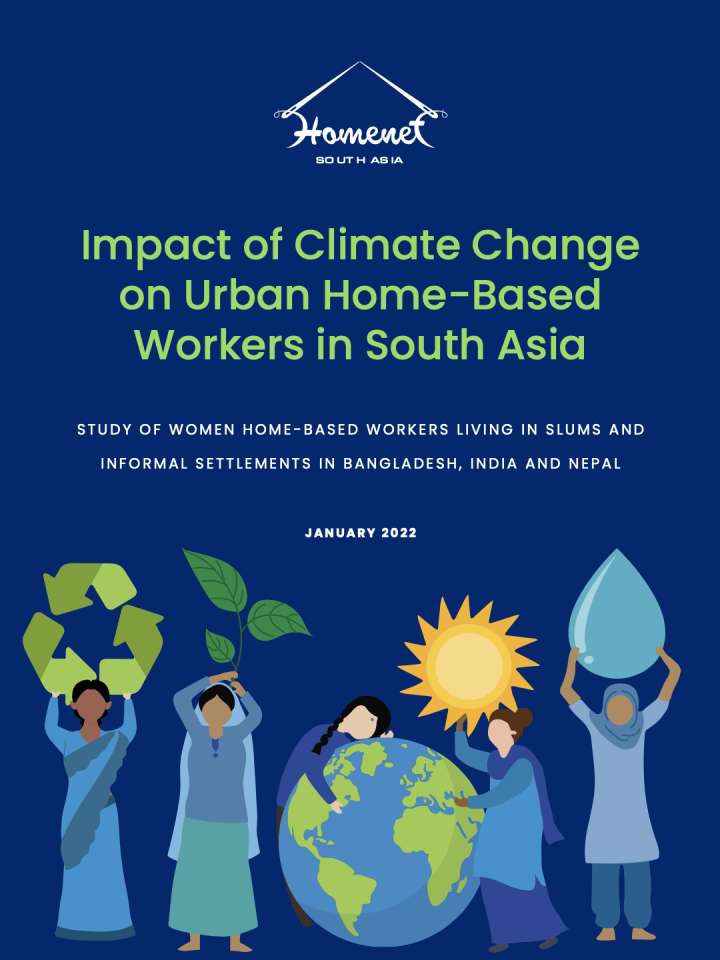Impact of climate change on urban home-based workers in South Asia
This study assesses the impact of climate change on urban home-based workers in South Asia focussing on women home-based workers living in slums and informal settlements in Bangladesh, India and Nepal. Home-based workers (HBWs), mostly women, although a critical part of global supply chains, are often invisible in economic statistics and, by extension, development policies and programmes. This has in turn led to limited research on the impact of climate change on HBWs. A few studies have highlighted how HBWs’ productivity is impacted by increasing temperatures and how they face losses as livelihoods are disrupted by unseasonal rain and flooding. However, there is a lack of proper evidence on the impact of climate change on them. In this context, this study was planned to understand the implications of climate change on HBWs, especially women.
Some of the key findings of the study include:
Key findings:
- Over 83% of the respondents reported that they had observed a rise in temperatures during summer in the last 10 years.
- More than two-thirds (66.3%) were unaware of the reasons for these changes, while around 11% believed such changes to be an “act of God”.
- Around 55% shared that climate change was affecting their family.
- The most visible impact has been on women’s unpaid work, with almost 46.5% of
- the HBWs reporting the same. Of them, almost 60% (56 respondents) said their work had increased by more than two hours daily. This increase was driven by the burden of caring for the ill, followed by the time and effort it took to fetch water and manage food stocks.
Explore further
